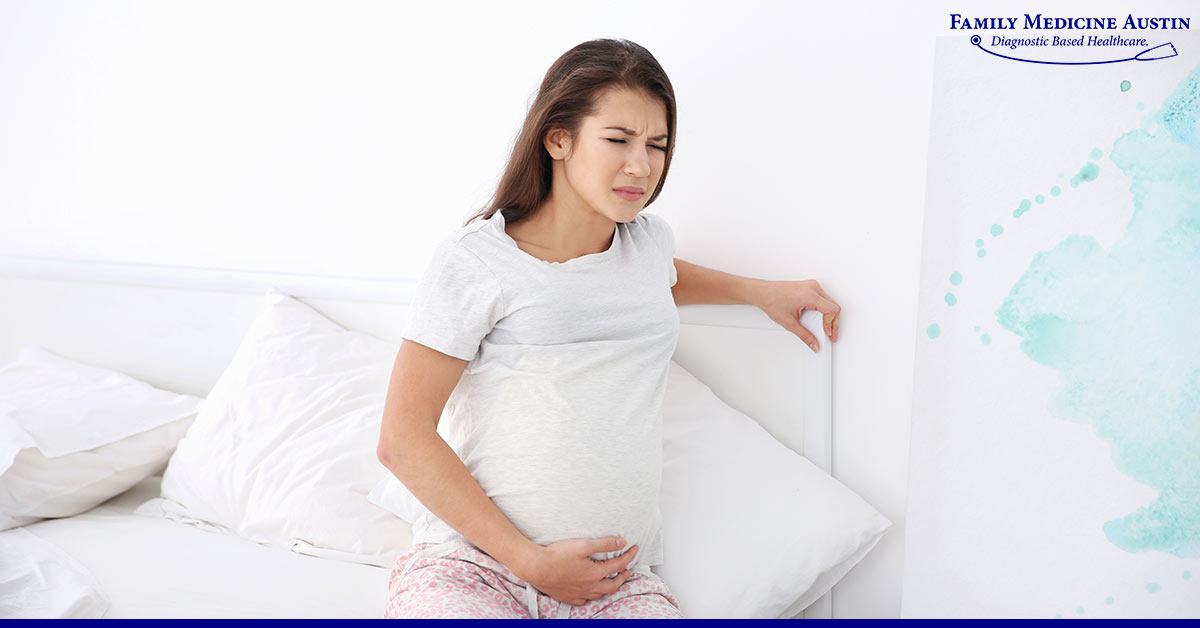
UTIs (Urinary Tract Infections) are bacterial infections that are especially common in pregnant women. Between 2 to 10-13 %[i] of pregnant women experience UTIs, and their reoccurrence frequency increases during pregnancy. Generally, UTIs are not something to be too worried about since you can treat them. However, if left untreated, a UTI becomes dangerous to the health of both the mother and the fetus.
A urinary tract infection (UTI) is a bacterial infection of the urinary system that commonly occurs in the kidneys (pyelonephritis), ureter, bladder (cystitis), and urethra (urethritis). A UTI may occur in both men and women but are most common in women, especially those who are pregnant and those who are very old or very young.
Although UTIs are the reason behind 8 million visits to the doctor annually and the second most common kind of infection in the body, they are most common in pregnant women, with around 31% of women experiencing it.
Pregnancy leads to high levels of hormones in the blood, such as estrogen and progesterone, which cause changes to the urinary tract. Furthermore, when excreting, the body releases more proteins, hormones, and sugar than the average amount, which leads to an increased risk for urinary infections.
With time, a pregnant woman’s uterus increases in size and puts more pressure on the bladder, which is located directly beneath the uterus. As it becomes hard to urinate, the urine stays in the body, and like anything left untreated or extra, this urine causes infection in the body.
If left untreated, UTIs may spread to the kidneys and cause infection of the kidneys. That can affect the baby as it leads to early labor or a baby with less weight.

Pregnant women usually experience three types of UTIs:
This is also known as asymptomatic bacteriuria. In this kind of UTI, the woman usually does not feel any UTI symptoms during pregnancy. Around 7% of pregnant women have this type of UTI, and the chance of the infection progressing into the bladder or the kidneys is 25%.
Cystitis occurs in the blood, and its UTI symptoms during pregnancy are the ones that are common in UTI, such as pain while urinating, small amounts of pee, and an urge to pee all the time.
This type of UTI occurs when the infection spreads to the kidneys and leads to many serious issues, which include the UTI pregnancy signs of cystitis and also include anemia, septic shock, excessive amounts of lung fluid, and early labor. Your baby may be smaller in size too. Since the kidneys are involved, it may also lead to pain in your sides and lower back.
The following signs and symptoms of UTI may help you detect the infection at an earlier stage:
UTI symptoms may also vary according to the trimester you are going through. At week 6 of pregnancy, the risk of acquiring a UTI goes high. During the first trimester, 41% of US women are diagnosed with UTIs. Then, around 20% of women are diagnosed with the infection during the second trimester. Finally, in the third trimester, 10% of women are diagnosed. However, women experiencing pyelonephritis usually find out about it in the second or third trimester. As these women are nearing their pregnancy, it becomes riskier for the baby. Hence, get diagnosed as soon as possible.
A UTI may occur because of the following reasons:
Usually, a urinalysis and a urine culture help detect an infection. A urine test is done regularly for pregnant women. Routine urine tests are not specifically done to check for UTI symptoms of pregnancy, so if you experience UTI symptoms, tell your doctor immediately. The sooner you get treatment, the better it will be for you and your baby.
Some doctors may also recommend a physical examination, with special attention to signs of UTI around the abdomen. However, people with asymptomatic bacteriuria usually do not show any signs of UTI during the physical examination.
Since bacteria cause UTIs, they can get treated with antibiotics, which are also safe for pregnancy. Visit your doctor, who will prescribe you the right kind of antibiotics. Make sure to follow the course of 3 to 7 days so the bacteria can disappear instead of becoming more resistant. If you experience nausea, vomiting or have a fever or chills, or still have trouble peeing after the course of the antibiotic, contact your doctor immediately.
It is also essential that you increase your water intake so you may flush out the toxins in the urinary tract.
In case the urinary tract infection progresses to the kidneys, the doctor will assign you a strong antibiotic, or you may have to take one intravenously at a hospital.
In the following ways, you may prevent the onset of UTI and prevent yourself from going through the trouble of treating it later on:
See Also: Uti Vaginal Discharge – Should I Be Concerned?
As a woman starts getting used to the changes in her body that come with pregnancy, she might ignore the UTI symptoms of pregnancy. Furthermore, 1 in 10 pregnant women don’t experience any UTI pregnancy symptoms, so it is best to get yourself tested before it is too late. Our experienced technicians at Family Medicine Austin can help you diagnose the infection and get you treated. Book your appointment now!